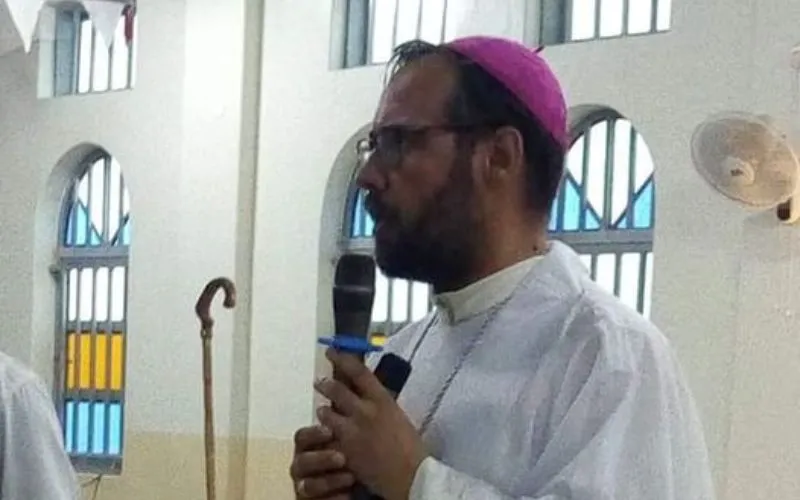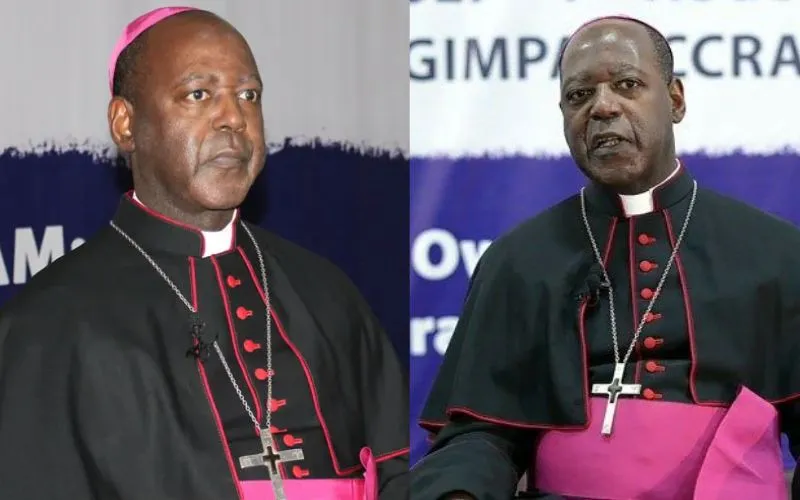The Bishop of the Diocese of Bentiu, since his Episcopal Installation on 11 August 2024, called upon the people God under his pastoral care to follow the path inaugurated by the Nativity of the Lord and turn to God, who he said, by becoming man, divinizes humanity.
“He (God) does not deny us that we are human persons, but He heals us from the dominant way of our being men,” said Italian-born Catholic Bishop, pointing out that Baby Jesus depicts the true face of who humanity is supposed to become, that is, “pilgrims who seek likeness to God, communion with Him and with our brothers and sisters.”
Emphasizing that Jesus Christ asks for everything and not just a part of all that is needed for His dream to take shape, the Member of the Religious Institute of Comboni Missionaries of the Heart of Jesus (MCCI) highlighted the need for a true Church that is more responsive to the needs of the poor people of God and for a life of responsibility among the faithful.
The 47-year-old Prelate who began his Episcopal Ministry in the Catholic Diocese of Rumbek, lamented over the myriad of challenges the new Catholic Diocese of Bentiu in the conflict stricken East and Central African nation faces, ranging from a shortage of the Clergy, religious men and women, poor infrastructural development, and overstretched camps for both internally displaced persons and refugees from the neighboring Sudan.
“This part of the population is certainly among the most marginalized and poor in the country,” he notes terming the territory as isolated and difficult to reach with some places only reachable by plane due to impassable roads.
Bishop Carlassare says, referencing a UNHCR report, which estimates that ‘90% of the population has abandoned their villages to find refuge in higher and drier lands, the Diocese has also a presence of about 70,000 Sudanese refugees, especially of the Yida ethnic group, in the Yida and Jamjang camps.
With only nine Diocesan Priests, Three members of the Order of Frias Minor Capuchin (OFM Cap) in Rubkona Parish, and a Community of Comboni Missionaries in Leer Parish, the Episcopal See which has seven Parishes, covers 38, 000 square Kilometers, with a population of about 1,131, 886—comprising 621, 643 Catholics, 350,000 Protestants, a significant number presence of Muslims and followers of other traditional religions.
The Local Ordinary of the vast Catholic Diocese of Bentiu that Pope Francis erected on July 3, expressed concern over the region’s dangerous environmental degradation and an economic development strategy disconnected from ethics, noting that such situations lead to a human crisis, and increased injustices.
He said the oil extraction in the Episcopal See has caused negative effects on the health of people in the Diocese due to the leakage of toxic substances that, coupled with flooding, end up polluting the sources from which the local population draws water for drinking and domestic use.
“In fact, the oil that is extracted here has not brought well-being to the population,” lamented Bishop Christian Carlassare in the November 29 message, and added, “It has been a source of personal enrichment for the ruling class, has fueled violence in the country and in areas where it is extracted; it continues to act as the main engine of competition between the elites within the country’s political system.”








